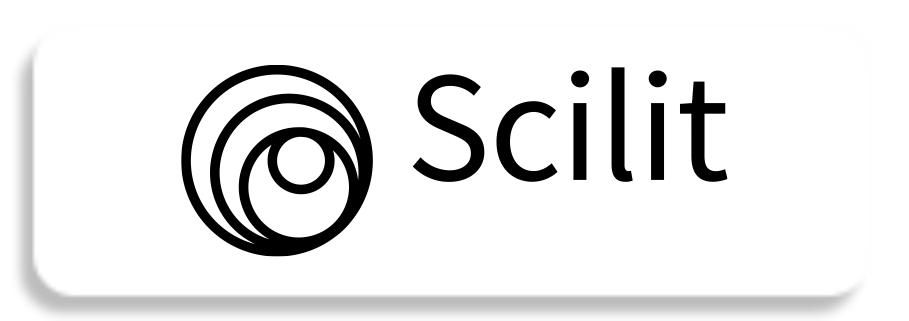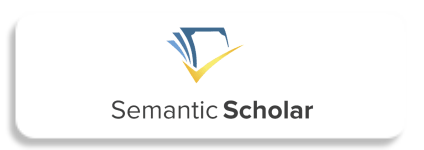IMPLEMENTATION OF DISCOVERY LEAR IMPLEMENTATION OF DISCOVERY LEARNING METHOD : IMPROVING STUDENTS ' LEARNING OUTCOMES AND POSITIVE ATTITUDES
IMPLEMENTATION OF DISCOVERY LEARNING METHOD : IMPROVING STUDENTS ' LEARNING OUTCOMES AND POSITIVE ATTITUDES
DOI:
https://doi.org/10.62568/jplse.v1i2.282Keywords:
Learning Outcomes, Positive Student AttitudesAbstract
This study aims to determine how the implementation of the Discovery Learning cooperative learning model can increase student engagement, and how the model can improve learning achievement and foster positive attitudes in students through the Discovery Learning cooperative learning strategy. The research method used is Classroom Action Research (CAR) which consists of four stages, namely planning, implementation, observation, and evaluation. The subjects of the study were students of class VIIB of SMP Negeri 3 Numfor Barat. The indicators of success in this study are the implementation of the Discovery Learning cooperative learning model, the achievement of a good average percentage of student engagement, accompanied by an increase in students' cognitive learning outcomes as indicated by an increase in the score range of 3.00. The instruments used consisted of pretest and posttest questions, student activity observation sheets, student learning outcome questionnaires, and Discovery Learning implementation observation sheets that had been evaluated by experts (expert judgment). The results of the study showed that the implementation of the Discovery Learning cooperative learning model can increase student engagement through the following stages: 1) students assess worksheets containing personal problem-solving activities. 2) students are actively involved, can find patterns or frameworks, understand ideas, 3) can retain information for a longer time and can apply it to different contexts, 4) students share the results of their group conversations, while their peers provide input.
References
Fitri, M. (2015). The Influence of Discovery Learning Model on Student Learning Outcomes on the Main Material of Temperature and Heat. INPAFI (Physics Learning Innovation) , 3 (2), 89-96.
Guntoro, E., Pohan, AE, & Fadhillah, S. (2024). ANALYSIS OF WEAKNESSES OF THE MATHEMATICS LEARNING MANAGEMENT MODEL AT SMPN 3 NUMFOR BARAT BIAK NUMFOR DISTRICT PAPUA PROVINCE. In PROCEEDINGS OF INTERNATIONAL CONFERENCE ON MULTIDISCIPLINARY STUDY (Vol. 2, No. 1, pp. 1-17).
Guntoro, E., Pohan, AE, & Harahap, DA (2024). COUNTING TRAINING PROGRAM TO IMPROVE STUDENTS' MATHS ABILITY IN SMPN 3 NUMFOR BARAT, BIAK NUMFOR REGENCY. In NATIONAL SEMINAR (SEMNAS) ON COMMUNITY SERVICE (PKM) (Vol. 1, No. 1, pp. 93-112).
Guntoro, E., Susanto, A., Pohan, AE, & Ramadhan, B. (2025). Improving Junior High School Students' Numeration Literacy Skills: Literature Review and Strategies for School Development. International Journal of Contemporary Sciences , 2 (4), 409-418.
Ministry of Education and Culture, Human Resources Development Agency for Education and Culture and Quality Assurance. (2013). Education on Discovery Learning Model . Jakarta: Ministry of National Education
PG Dikdas. (2020) . Retrieved from http://pgdikdas.kemdikbud.go.id/read-news/mengenal-model-pembelajaran-discovery-learning
Sahat Saragih. 2007. Developing Logical Thinking and Positive Attitudes towards Mathematics through Realistic Mathematics Approach. Presented at http://zainurie.files.wordpress.com/2007/11/j61091.pdf
Sri Wardani. 2004. Contextual Mathematics Learning in Junior High School. Presented at http://www.p3gmatyo.go.id/download/SMP/Mat Kontekstual.pdf
Tampubolon, D. (2017). Students' Perception on the Discovery Learning Strategy on Learning Reading Comprehension at the English Teaching Study Program Christian University of Indonesia. Journal of English Teaching , 3(1), 43-54.
Thorsett, P. (2021). Discovery Learning Theory A Primer for Discussion. http://limfabweb.weebly.com/uploads/1/4/2/3/14230608/bruner_and_discovery_learning.pdf
Westwood, Peter. (2008). What Teachers Need Now about Teaching Methods. Australia: Ligare
Reference Book
Arends, RI 2004. Learning to Teach . New York : the McGraw-Hill Companies
National Education Standards Agency. (2006). Guidelines for Preparing Curriculum at the Education Unit Level for Elementary and Secondary Education. Jakarta: Department of National Education
Djaali. 2007. Educational Psychology . Jakarta: PT Bumi Aksara
Djaali & Pudji Muljono. 2008. Measurement in the Field of Education . Jakarta: Grasindo
Eko P. Widyoko. 2010. Evaluation of Learning Programs. Yogyakarta: Pustaka Pelajar
Gulo, W. 2004. Teaching and Learning Strategies . Jakarta: Grasindo
Harahap, DA, Pertiwi, SAB, Heriyanto, M., Putri, AH, Rahmah, F., Sari, SP, ... & Pusvariauwaty, P. (2024). STRATEGIC MANAGEMENT OF EDUCATION.
Ibrahim and Nana Syaodih. 2003. Teaching Planning. Jakarta: Rineka Cipta
Isbandi Rukminto Adi.1994. Psychology, Social Work, and Social Welfare Science: Basics of Thought.Jakarta: PT Raja Grafindo Persada.
Nana Sudjana. 1995. Assessment of the Results of the Teaching and Learning Process. Bandung: PT. Reaja Rosdakarya
Ngalim Purwanto. 1997. Principles and Techniques of Teaching Evaluation. Bandung: Remaja Rosdakarya
Oemar Hamalik. 2005. Teaching Planning Based on the Systems Approach . Jakarta: PT Bumi Aksara
Rachmadi Widdihartono. 2004. Junior High School Mathematics Learning Models. Yogyakarta: Department of National Education. Directorate General of Elementary and Secondary Education Center for Teacher Development and Training (PPPG) Mathematics
Sardiman. 2006. Interaction and Motivation of Teaching and Learning. Jakarta: Raja Grafindo Persada
Suharismi Arikunto and Cepi Safruddin Abdul Jabar. 2004. Evaluation of Educational Programs . Jakarta: Bumi Aksara
Syamsu Yusuf and Juntika Nurihsan. (2006). Foundations of Guidance and Counseling. Bandung: PT REMAJA ROSDAKARYA.
Rusgianto HS 2000. “Attitudes and Achievements of Students of Mathematics Education Department”. Scientific Research. Yogyakarta: FMIPA UNY
Downloads
Submitted
Accepted
Published
How to Cite
Issue
Section
License
Copyright (c) 2024 Erwanto Guntoro

This work is licensed under a Creative Commons Attribution 4.0 International License.



















